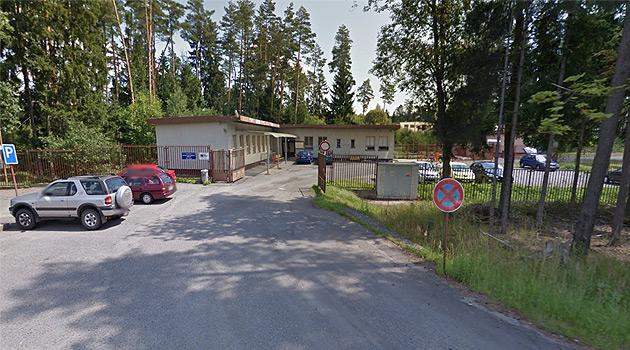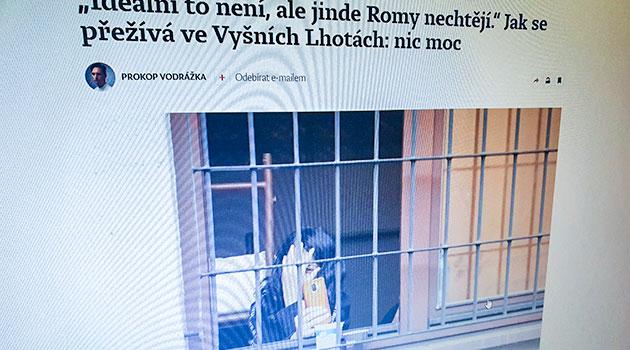Czech detention facility housing 130+ refugees from Ukraine, half of them are Romani

Two buildings on a campus run by the Refugee Facilities Administration (SUZ) in the municipality of Jezová, Czech Republic, located about three kilometers from Bělá pod Bezdězem in the Mladá Boleslav area, have been serving for more than two months to accommodate refugees from Ukraine. At the moment there more than 130 of them there, about half of whom are Romani people.
Miroslava Báchorová, head of the facility, informed reporters of this fact yesterday. The first refugees from Ukraine who were accommodated at Jezová were Romani and were gradually joined by non-Romani refugees from Ukraine, but now the number of Romani refugees from Ukraine housed there is increasing.
“At the beginning it was very transitory, now some families are starting to stay,” Báchorová said. Just two of the refugees are men, while the rest are children and women.
SUZ employees teach both the adult and the child refugees Czech three times a week there. “They haven’t admitted anybody at the school in Bělá yet, but we have been promised that as of September they should integrate them into the common classes,” said Báchorová.
Currently, according to the director, 14 children of compulsory school age are in the facility, and she believes most of the Romani children are not attending school. Several child refugees are learning online, and for the younger ones a program of recreation is provided daily.
Three adult refugees have found jobs, one man and two women, one of them cleaning the facility itself. The director says there is a shortage of job opportunities for women in the local area.
“We can’t make any headway on this, these people can’t get out of here because they don’t have the money, but they aren’t earning anything anywhere,” she said. Some of the refugees say they want to return to Ukraine in the future (or have already done so), others would like to remain in the Czech Republic.
For the last two years, prior to Russia’s invasion of Ukraine, the two three-storey buildings where the refugees now live served as quarantine facilities for COVID-19 positive persons. “The buildings are not strictly divided between non-Romani and Romani people, it depends on the order people arrived in, although Romani families of course want to be together. It suits them that there are two apartment units sharing a bathroom and kitchen, and we’ve had to add mattresses when there are more children,” said Báchorová.
There are 65 employees at the facility and one of the four social workers is even Ukrainian. Occasionally, employees of the nonprofit organization Romodrom come there.
The refugees are able to take advantage of 24-hour health care at the facility, according to Milos Navrátil of the Czech Interior Ministry, who says the health care professionals are treating most refugees for post-traumatic stress disorder. It is the assistance centers where refugees register that decide to house them in a SUZ facility.
“The places in our buildings are intended primarily for those applying for international protection, and the recognized refugees from Ukraine fill up the remaining free capacity,” said SUZ spokesperson Jan Piroch. In addition to the Bělá-Jezová SUZ facility, there are others in the Frýdek-Místek district (Vyšní Lhoty), Havířov (Karviná district), Kostelec nad Orlicí (Rychnov district), and Zastávka u Brna.
The Bělá-Jezová campus also includes a facility for detaining foreign nationals with a capacity of 165 places, and currently about a tenth of them are filled. “That is for persons who, while residing in the Czech Republic, behaved contrary to Czech law and who are in custody waiting for a decision on their expulsion,” Piroch said.
The two kinds of buildings on the campus are separated by bars and fences. The refugees, however, do have freedom of movement there.
As of Monday, more than 320 000 refugees from Ukraine have been granted temporary protection in the Czech Republic. The Refugee Facilities Administration is taking care of about 500 of them in its buildings.
